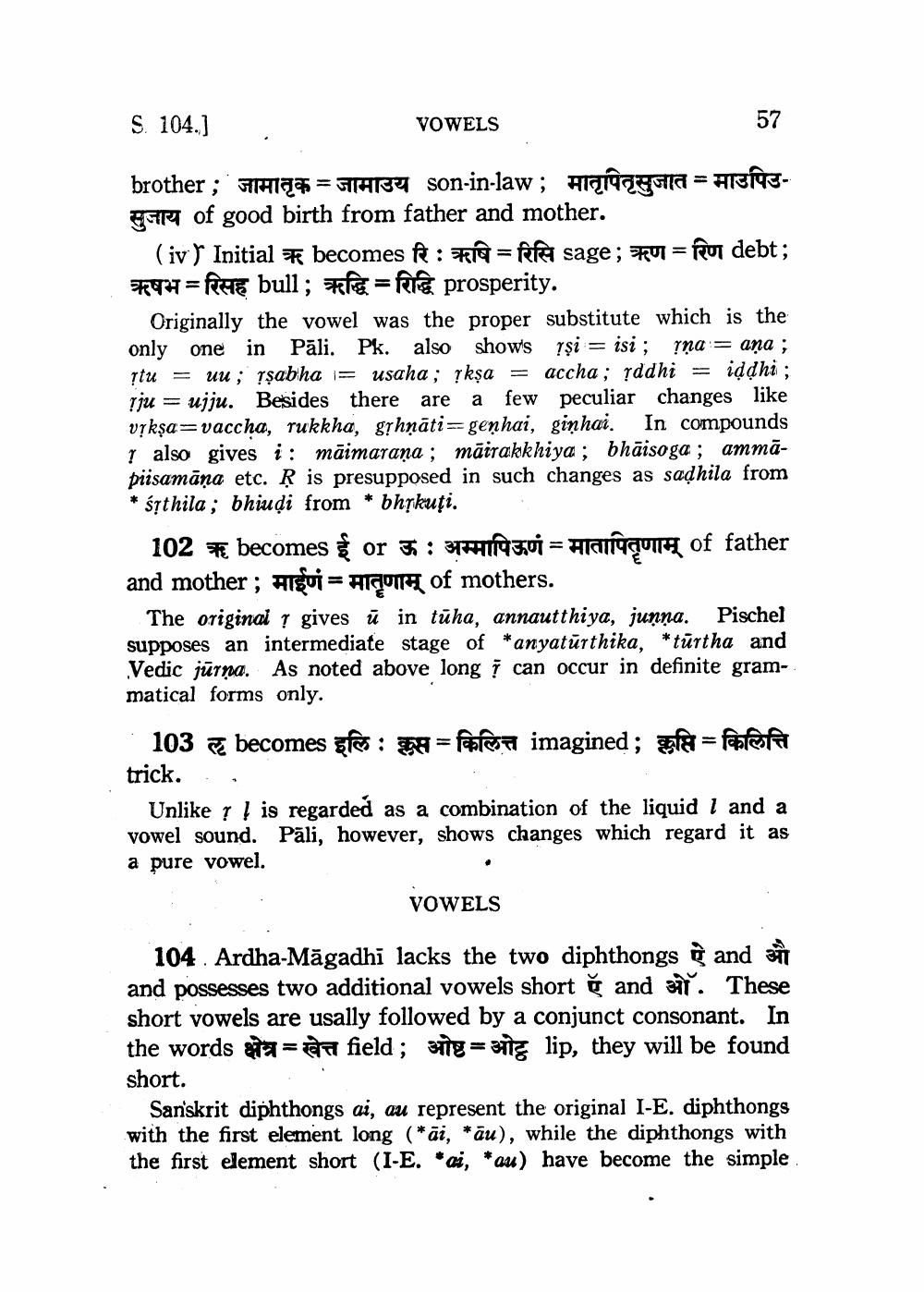________________
S. 104.)
VOWELS
57
brother ; HTHIYA = F(H184 son-in-law; HILANGE FIAT = HTETASFry of good birth from father and mother. (iv) Initial # becomes : #ra = fifa sage ; #01 = Rut debt ;
=Rhe bull; #fprosperity. Originally the vowel was the proper substitute which is the only one in Pāli. Pk. also show's şi = isi; Ina= ana ; ītu = uu ; ışabha = usaha ; ?ksa = accha; ?ddhi = iddhi ; rju = ujju. Besides there are a few peculiar changes like vrkșa=vaccha, rukkha, gļhņāti=genhai, ginhai. In compounds I also gives i: māimarana; māirakkhiya; bhāisoga; ammāpiisamāna etc. R is presupposed in such changes as sadhila from * śȚthila ; bhiudi from * bhrkuti.
102 # becomes for 5 : 3441150i = Araraquira of father and mother ; माईणं मातृणाम् of mothers.
The originai ļ gives ū in tūha, annautthiya, junna. Pischel supposes an intermediate stage of *anyatūrthika, *tūrtha and Vedic jūrna. As noted above long i can occur in definite grammatical forms only.
103 E becomes sfos:
paressa imagined;
a = falsafa
trick.
.
.
Unlike ? Į is regarded as a combination of the liquid 1 and a vowel sound. Pāli, however, shows changes which regard it as a pure vowel.
VOWELS
104. Ardha-Māgadhi lacks the two diphthongs g and a and possesses two additional vowels short ğ and 311. These short vowels are usally followed by a conjunct consonant. In the words क्षेत्र = खेत्त field; ओष्ठ = ओ? lip, they will be found short.
Sanskrit diphthongs ai, au represent the original I-E. diphthongs with the first element long (*ãi, *āu), while the diphthongs with the first element short (I-E. *ai, * au) have become the simple




